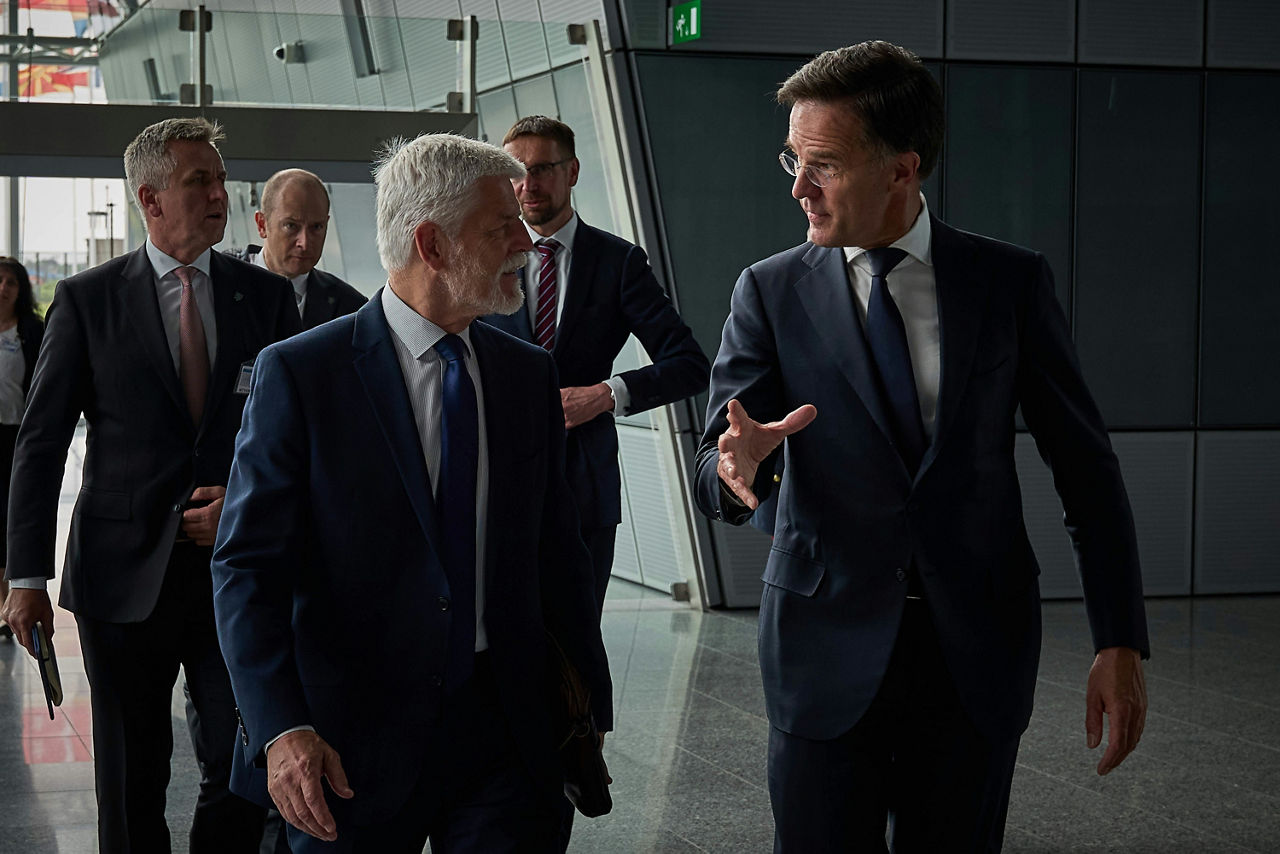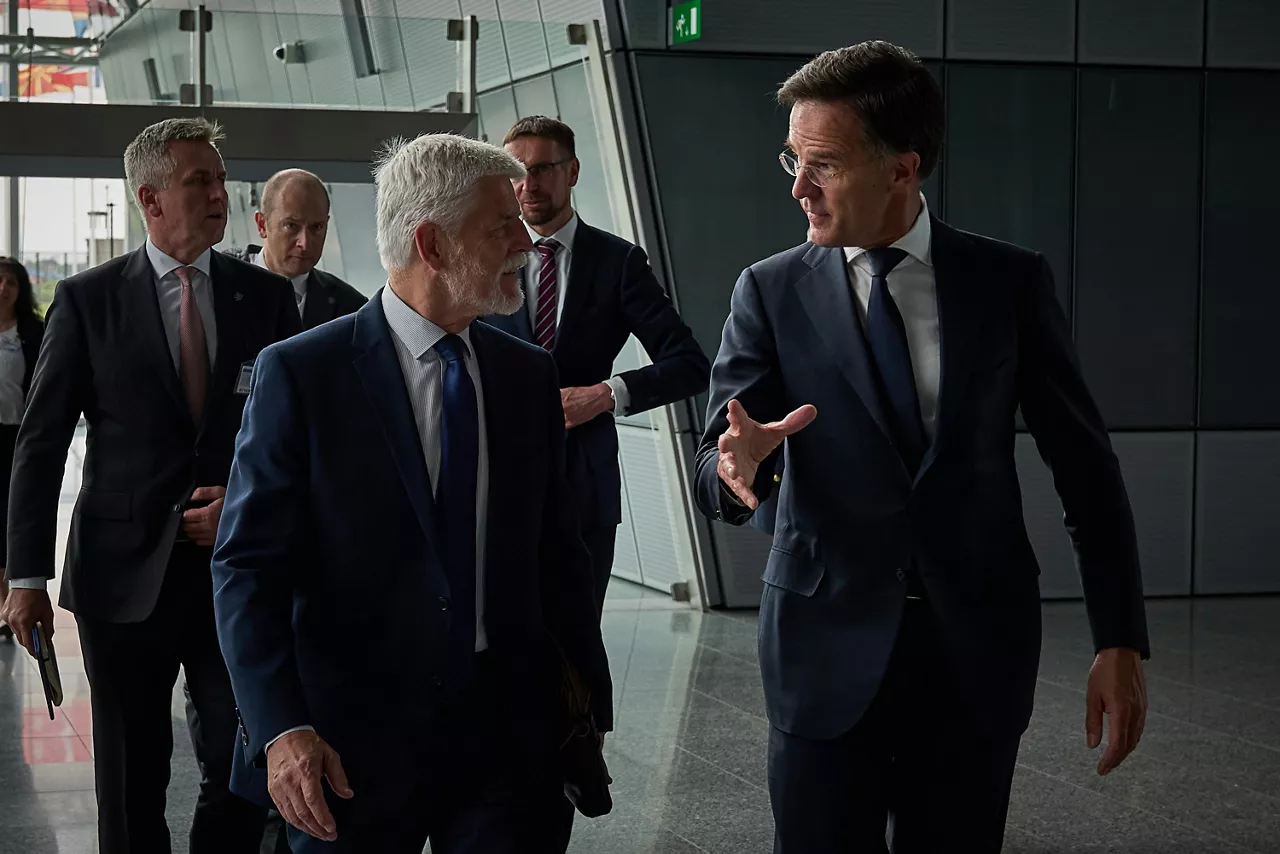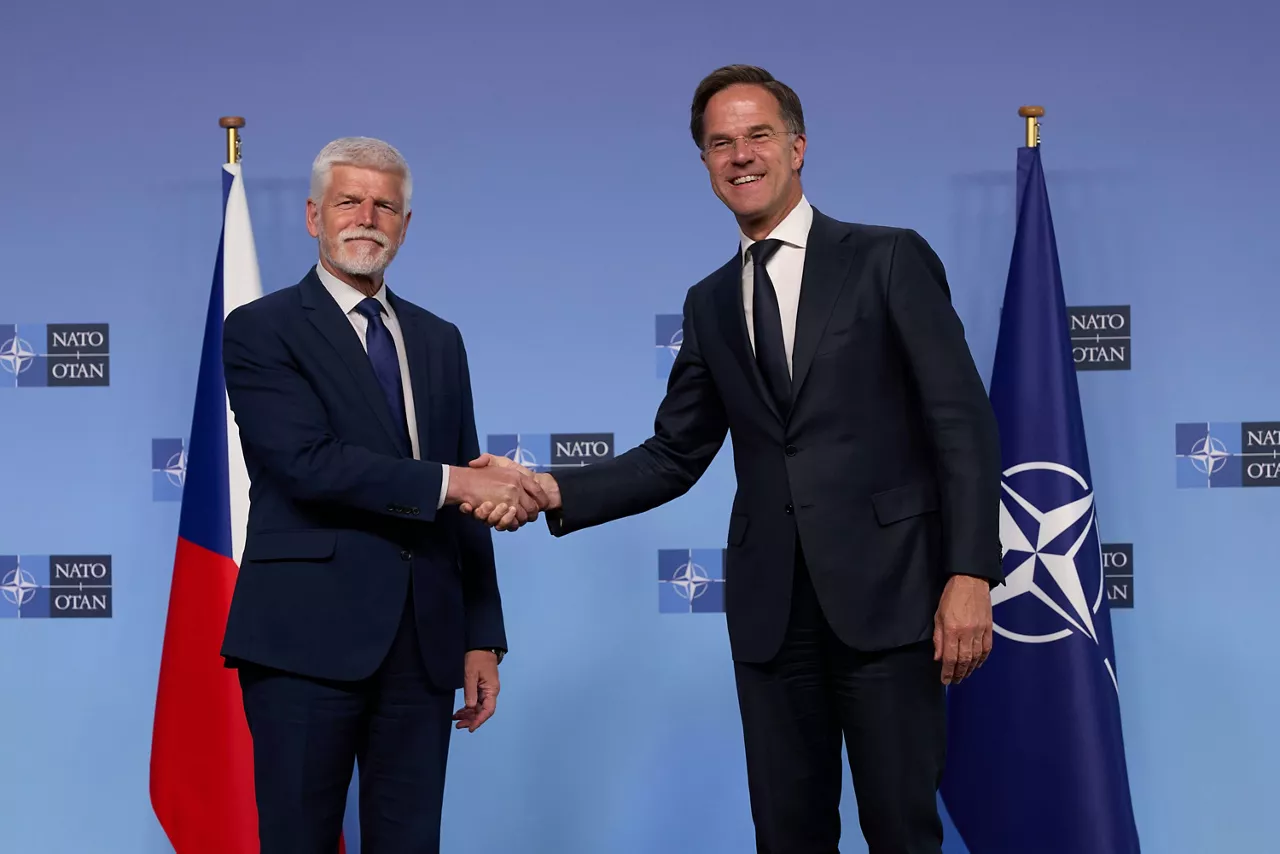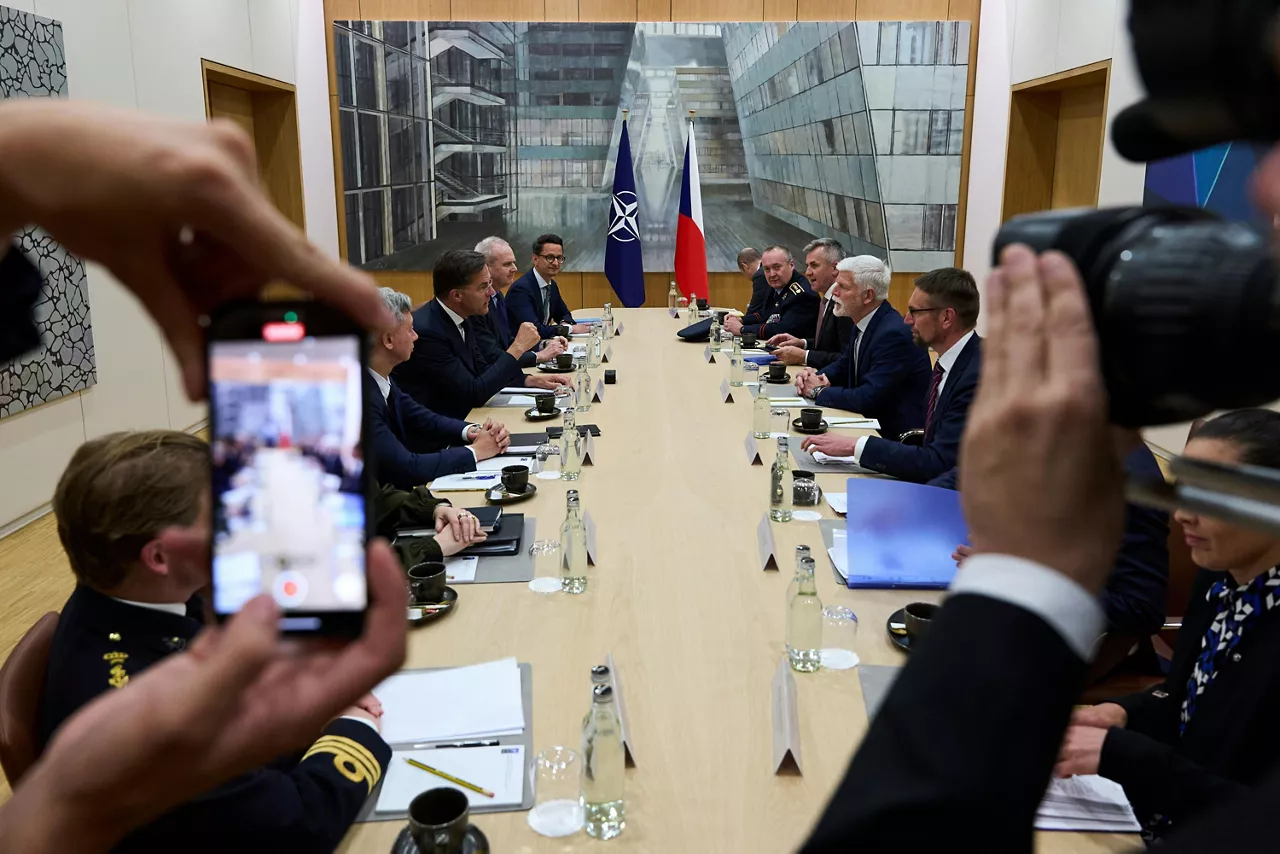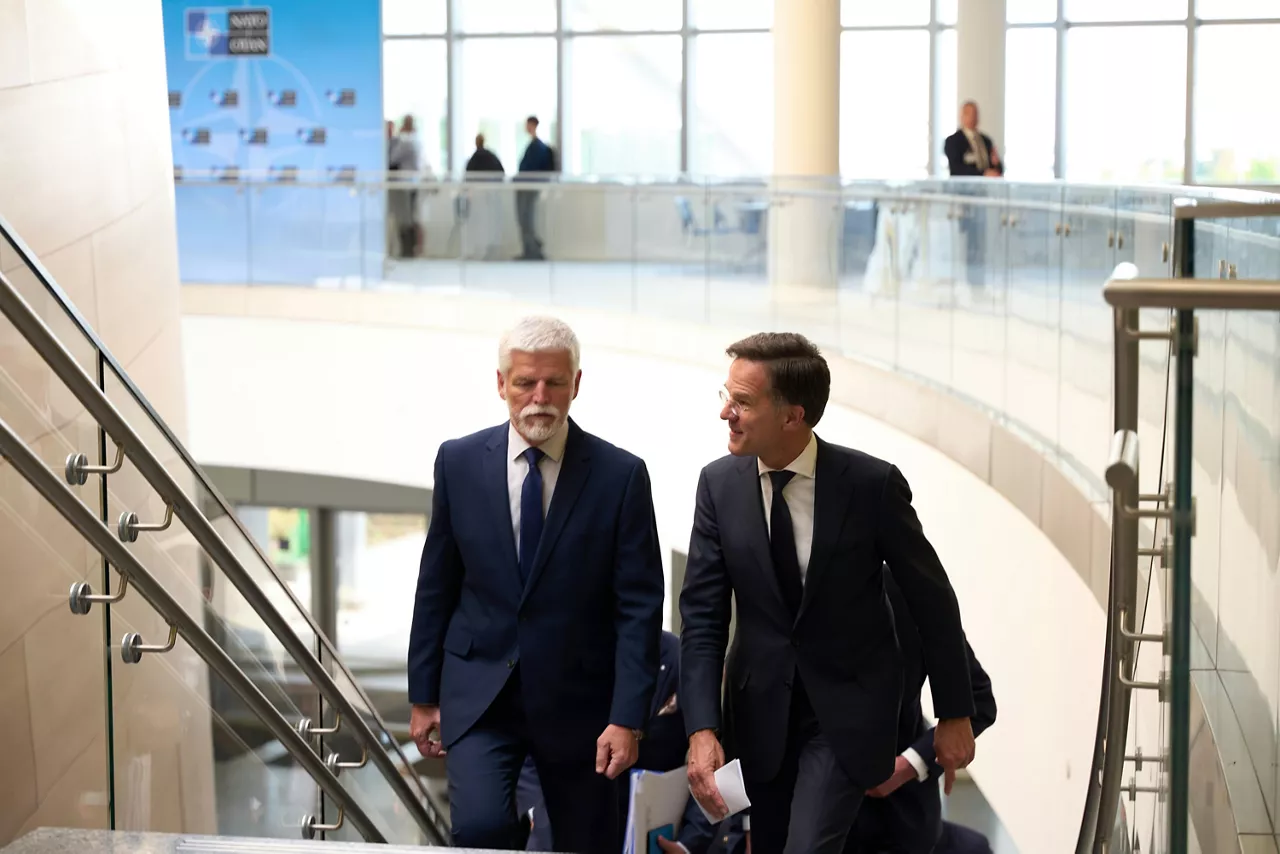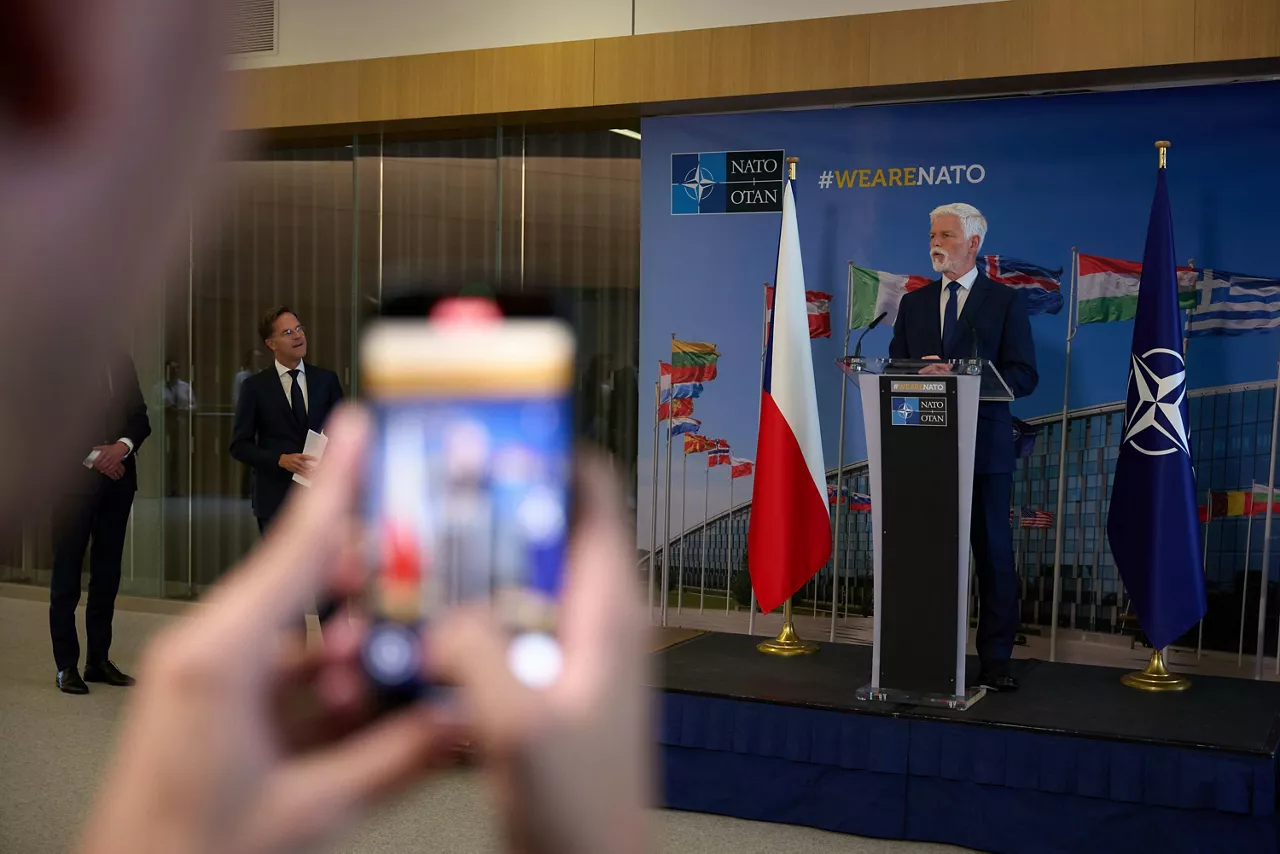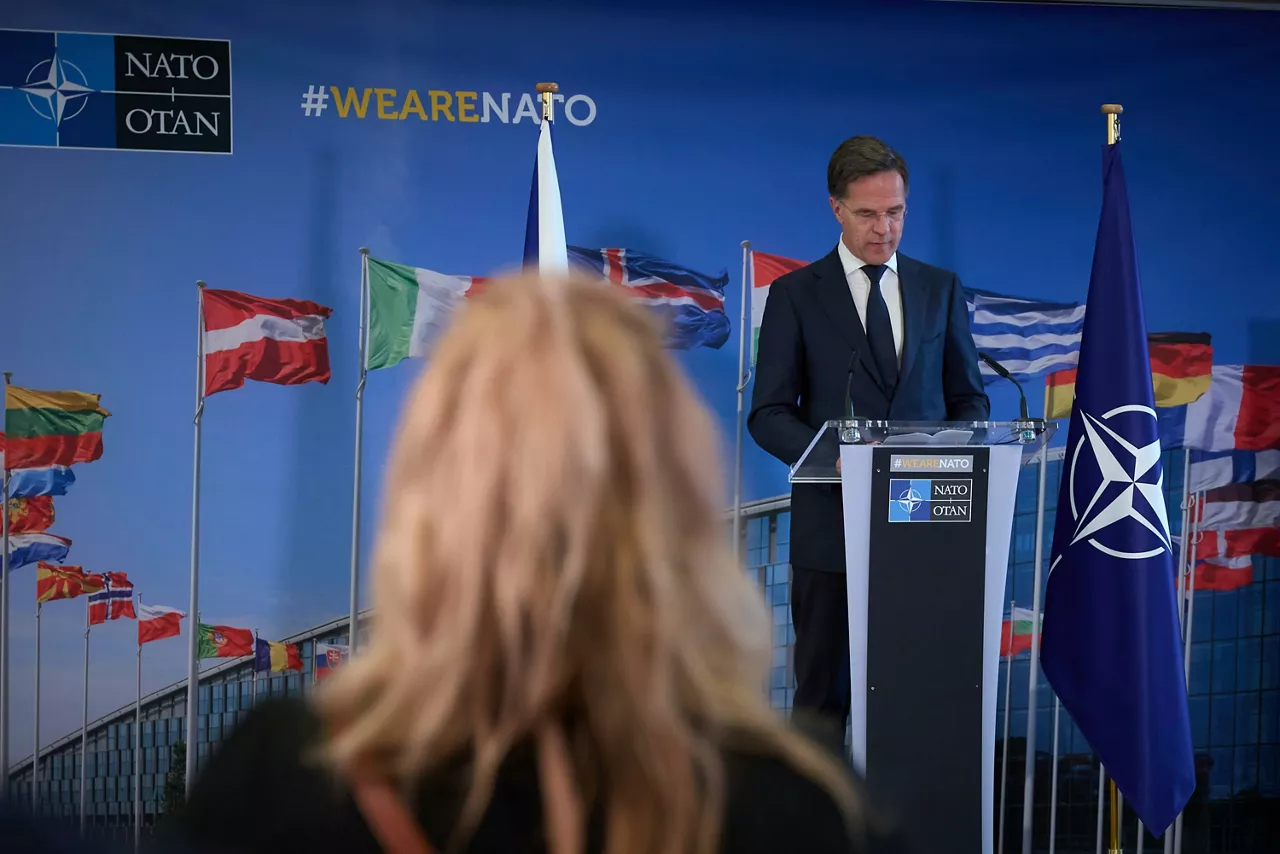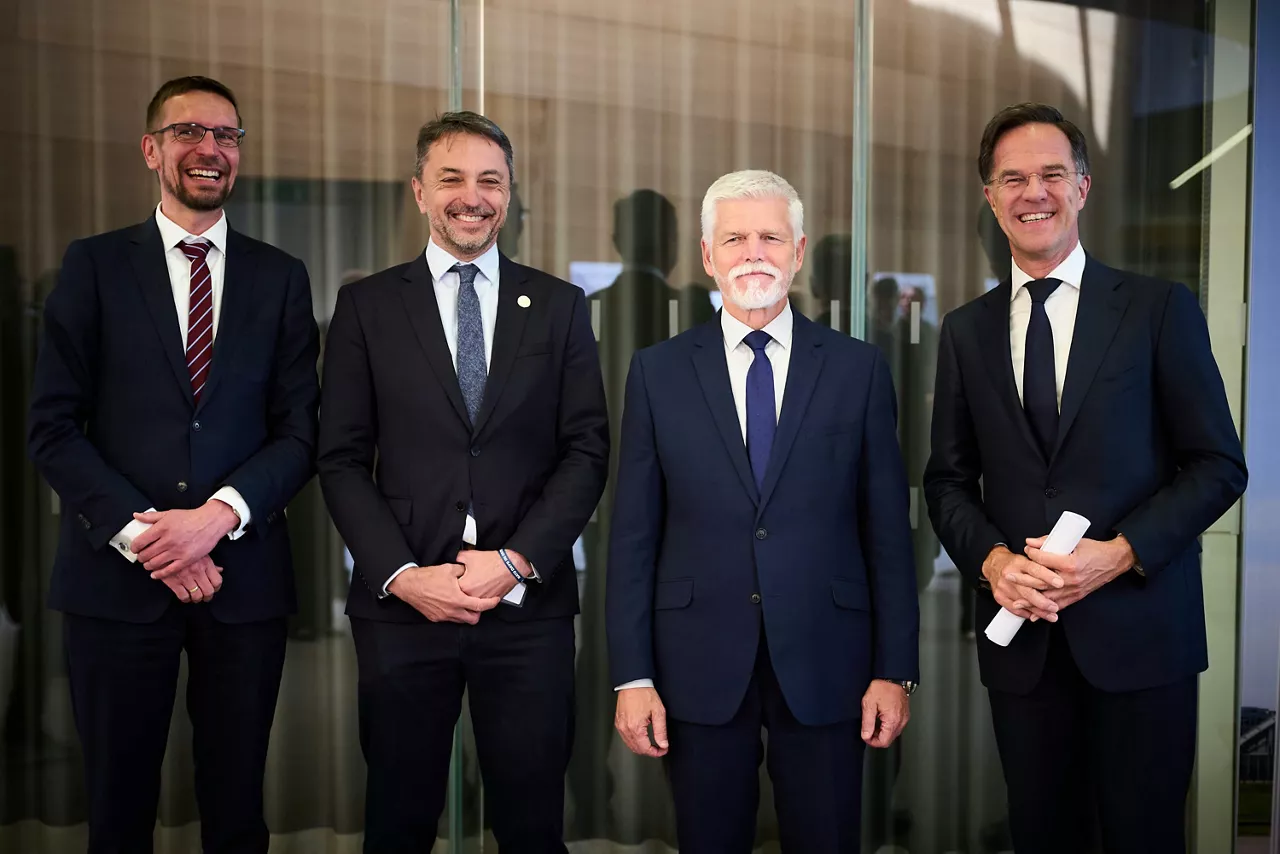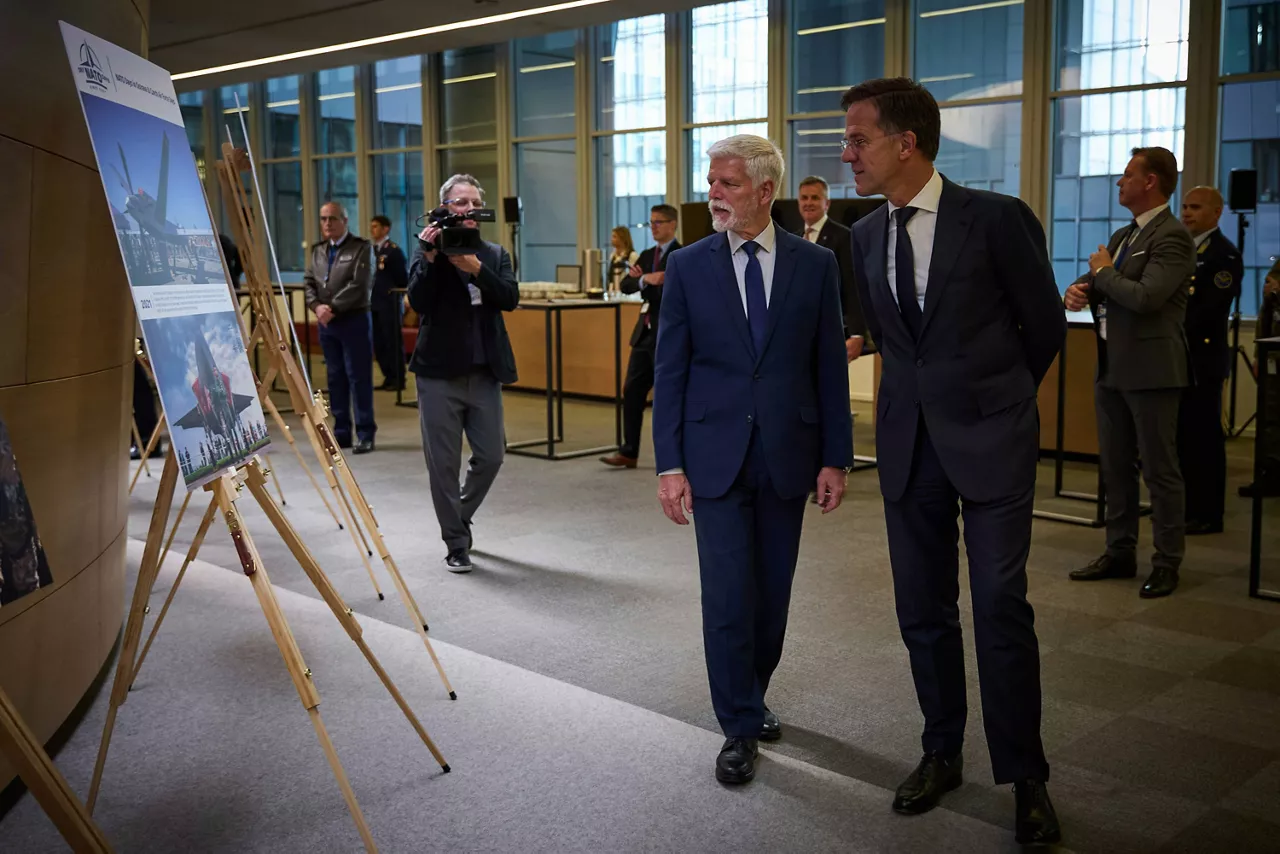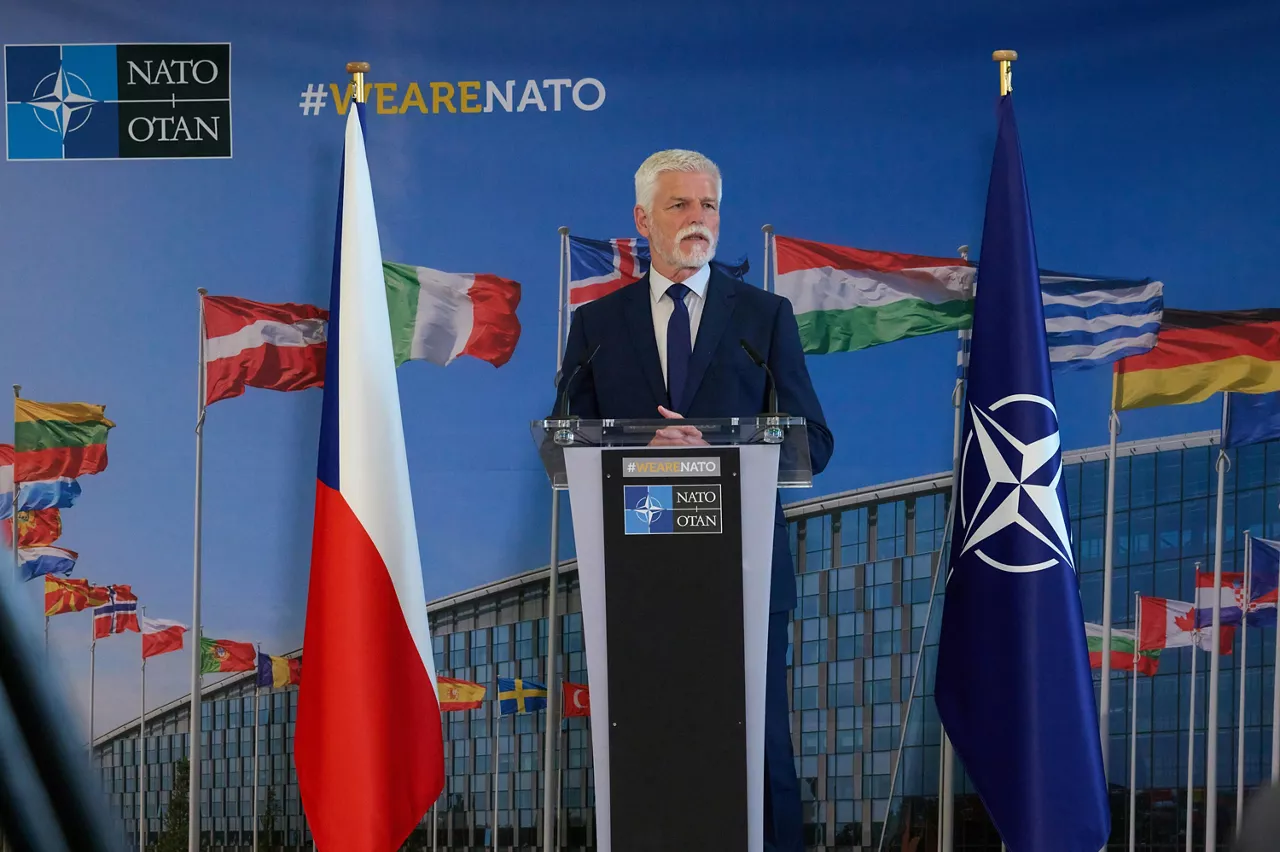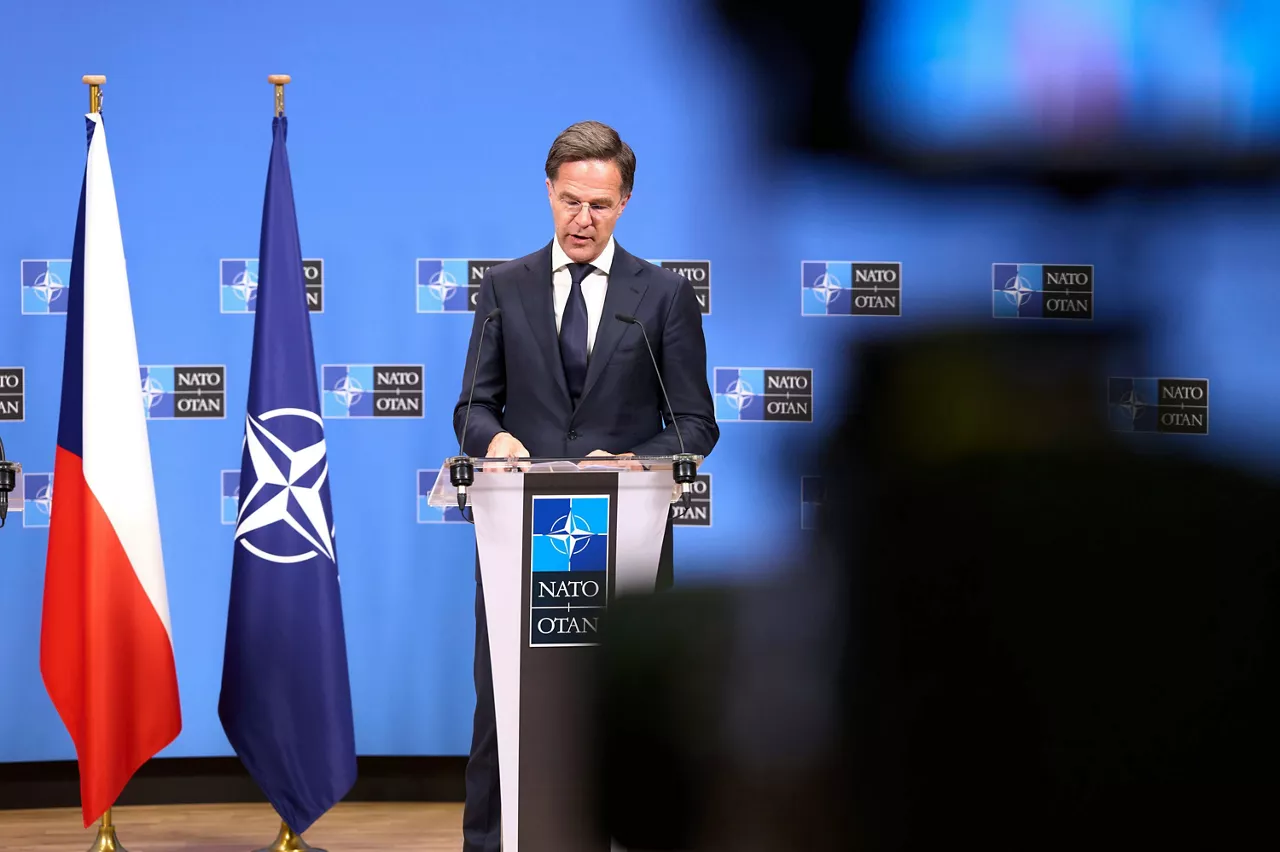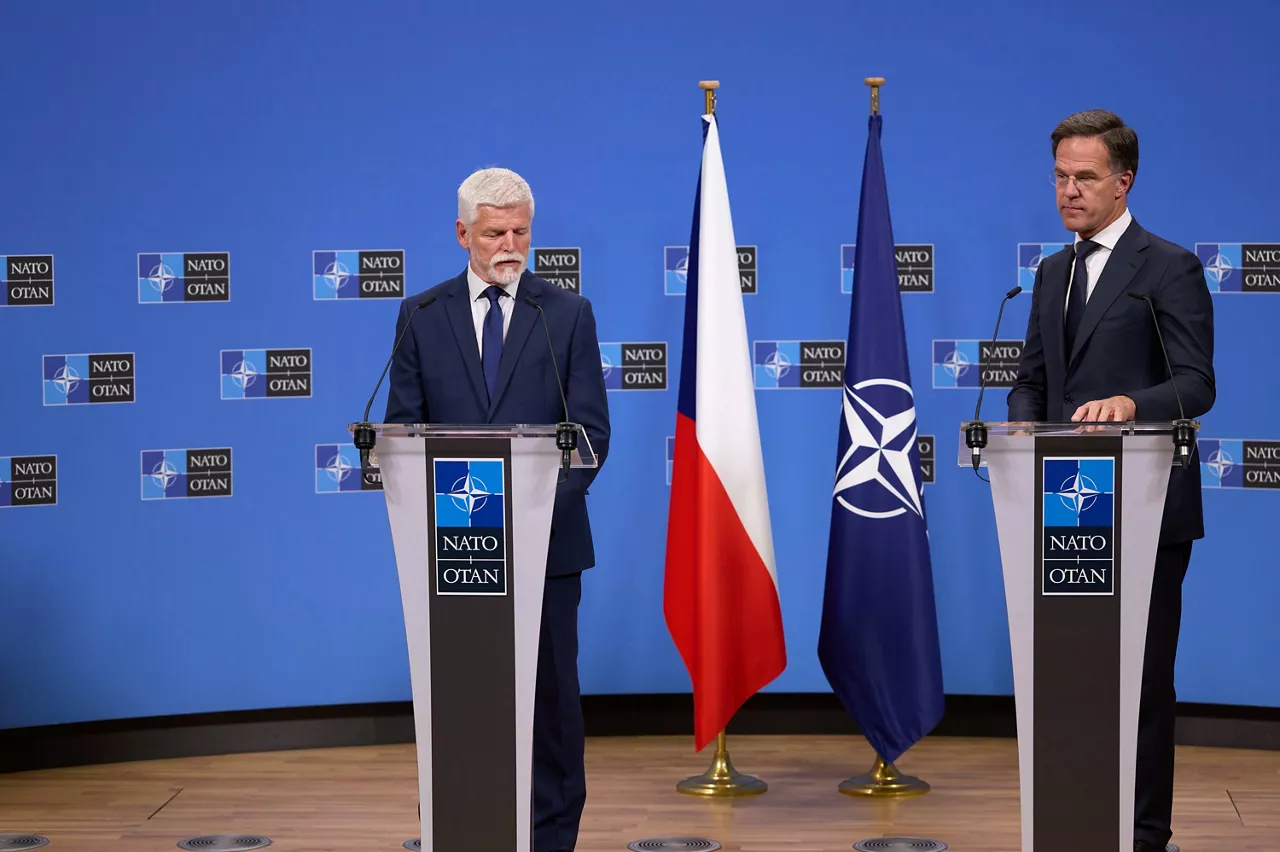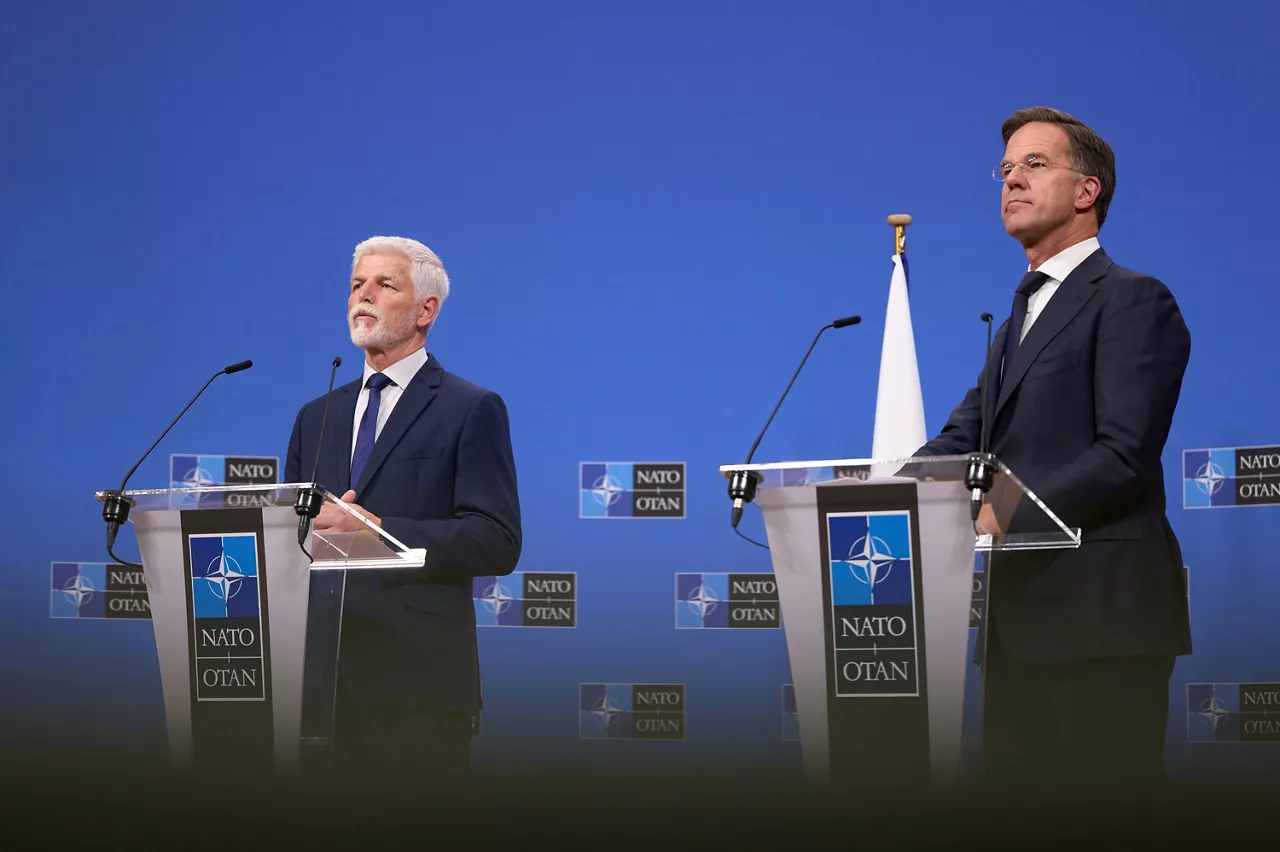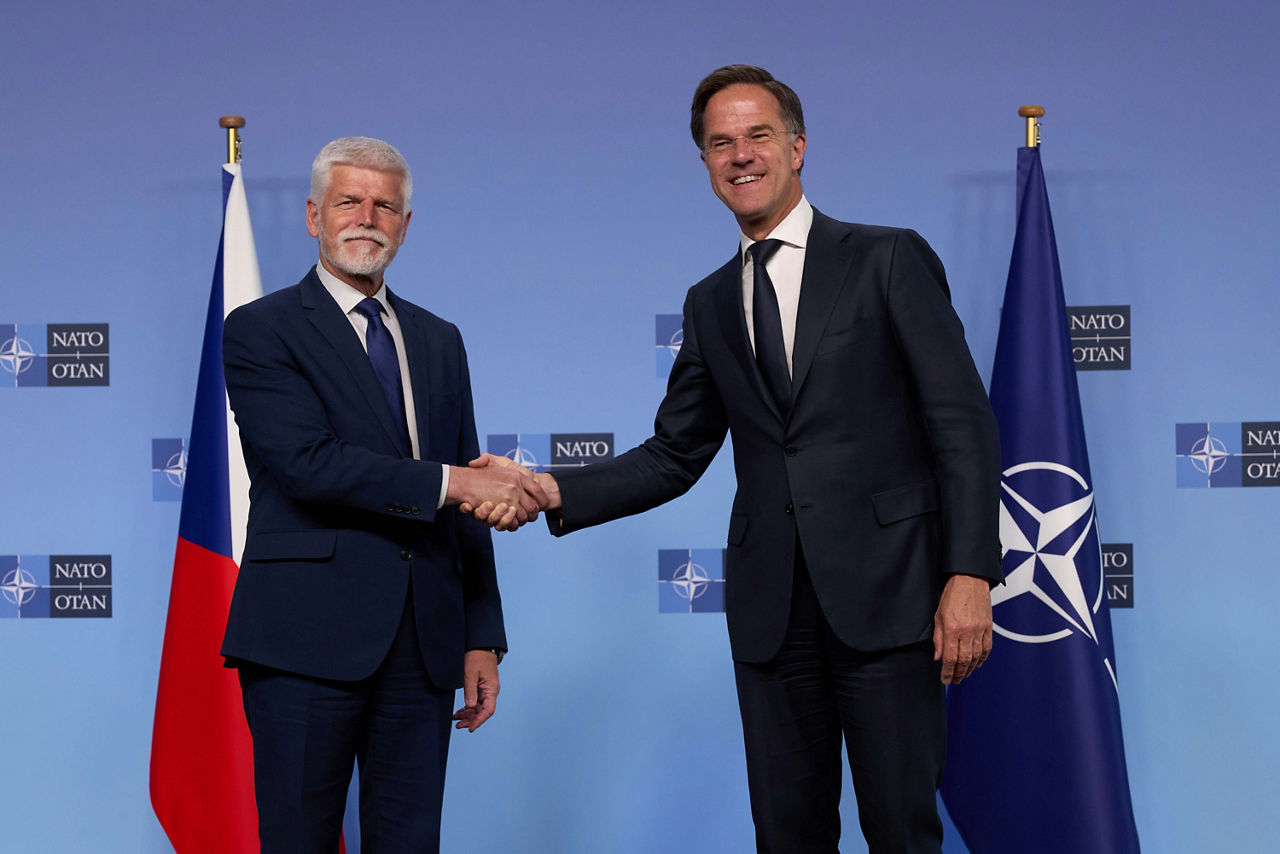Download NATO’s broadcast-quality video content free of charge

Log in
NATO MULTIMEDIA ACCOUNT
Access NATO’s broadcast-quality video content free of charge

Check your inbox and enter verification code
You have successfully created your account
From now on you can download videos from our website
Subscribe to our newsletter
If you would also like to subscribe to the newsletter and receive our latest updates, click on the button below.
Enter the email address you registered with and we will send you a code to reset your password.
Didn't receive a code? Send new Code
The password must be at least 12 characters long, no spaces, include upper/lowercase letters, numbers and symbols.
Your password has been updated
Click the button to return to the page you were on and log in with your new password.
(As delivered)
President Pavel, dear Petr. Welcome to NATO Headquarters, and I can only say it is a pleasure to see you.
Twenty-six years ago, Czechia joined our Alliance, and since then, you have consistently proven to be a strong and reliable Ally. You spend more than 2% of GDP on defence, and I welcome the commitment you have already made to increase defence spending to 3% in the coming years. Czechia's contributions to NATO's deterrence and defence are highly valued.
You contribute to NATO's forward land forces in Slovakia, Latvia and Lithuania, and this year, you will deploy combat aircraft to Iceland as part of NATO's air policing mission. Czechia is also a staunch supporter for Ukraine. Since Russia launched its full-scale invasion in 2022, Czechia has provided over 1.3 billion euros in military aid to Ukraine.
The Czech-led ammunition initiative has been a remarkable success, facilitating the delivery of over 3 million rounds of large calibre ammunition to Ukraine. In 2024 alone, 1.5 million shells were delivered thanks to your leadership.
Czech personnel are contributing to the NATO Security Assistance and Training for Ukraine, our command in Wiesbaden, NSATU. And this July, Czech will deploy 20 personnel to NSATU's logistics enabling nodes. This is making a real difference as Russia's war against Ukraine continues, and it will remain important even after the fighting stops.
Last week, NATO Foreign Ministers met in Antalya to continue preparations for the NATO Summit in the Hague. Our focus there was clear: how to make our Alliance stronger, fairer and more lethal. Today, President Pavel and I continued that conversation. Strengthening our deterrence and defence is our core mission.
This means that Allies must increase defence spending, a key priority for the Summit in The Hague to ensure our forces have the capabilities they need, and that burden sharing is taking place in a fair sense among our Allies. I welcome the significant announcements made by several allies in recent days and weeks to boost their national defence spending.
We will need to do much more, and this will remain our focus as we prepare for the The Hague Summit. This also requires strengthening our industrial capacity, securing more robust supply chains, and investing in new technologies to stay ahead of the curve in a more dangerous world. We need a Transatlantic defence industry that is stronger, faster and more innovative, and here also we need your help with your impressive defence industrial base.
With only five weeks before the Summit in The Hague, we have a lot of work to do, and I know I can count on Czechia continued commitment and leadership.
President Pavel, dear Petr, thank you again for your visit, for your leadership and your strong support for our Alliance, and with that, the floor is yours. Thank you.
Allison Hart, Acting NATO Spokesperson
Alright, we have time for a few questions. We'll start here in the front row, Teri.
Teri Schulz (DW)
Hi, thank you very much. For both of you. Mr Secretary General, in recent days, actually, in recent weeks, Finland has tracked a build-up of Russian forces just across its border. We've seen the satellite imagery. I want to know how NATO believes it should best respond, although, of course, the Finns are quite capable. And General Pavel, as a former CMC I'm interested in your thoughts on this. Although I understand, in your current position you don't comment so much on NATO policy. But I'm interested in what you said about defence spending - about raising it to 3% is not going to be enough for The Hague Summit. I guess you're more qualified than most to explain to people why you need to go higher. But how is the Czech Republic – how is Czechia going to get to 3.5% of GDP, but possibly also the 1.5% that it is likely to be requested at The Hague, thank you.
Petr Pavel, President of Czechia
Okay. Well, I think it will not be so difficult to explain, because if we start from defence planning, which is actually the foundation of all the requirements, we can easily deduct from concrete requirements for every single country, how much will it cost? And by only counting all these items together, we get very close to 3.5% sometimes even a little bit higher. So it will not be so difficult to explain for what we need to spend three or more percent of GDP. When it comes to this part of 1.5[%], let's say, additional security-related requirements, they are items that deal with dual-use technologies, with infrastructure. Specifically for Czech Republic, which is [inaudible] country surrounded by NATO Allies, our role is mainly transit route and host nation support. Which means a lot of requirements on logistics and every kind of support to moving troops. The spending that we would have to anyway spend for improving all means of transport routes through Czech Republic will actually count for this 1.5%. So I don't think it will be a big difficulty to achieve that level of spending.
Mark Rutte, NATO Secretary General
On your first question, but also building a bit of a bridge between the two issues. Of course, within NATO, with our Allies, we trace and track 24/7, every development. That doesn't mean that I can always comment on every development. But let me zone out a little bit from the concrete question. We know that Russia is at an enormous pace reconstituting itself. They are producing at this moment, ammunition at a level which has not been seen in recent decades. They produce four times as much ammunition as the whole of NATO is producing as we speak. They're reconstituting their armies. Their whole economy is on a war footing. And we have had open sources saying, from intelligence services, that by 2027 or by 2030 or by 2032 they might be able to be at such a level of strength that they could try something silly. What we have to do as NATO is to make sure that Vladimir Vladimirovich Putin knows that if he attacks now or in the near future, that our reaction will be devastating. And this is - now I built a bridge between the two questions you asked. This is exactly why the President is explaining we need this extra defence spending. Because with the 2% we can keep ourselves safe today and tomorrow. But the day after tomorrow, figuratively speaking, we need to do much more than the 2%. It has to come up. It has to be north of 3%, as I've said before. And there is also the issue of the defence-related spending, because we have to make sure that our roads and railroads, etc, are capable. But also our resilience is at the level that we are, as a whole of society, able to defend NATO, to defend NATO territory. So that is about spending, but it all comes down to what we actually need, and we are missing today, or are lacking today, at a sufficient level to be able, not only today, but also in three to five years, to defend NATO territory. And that has to do with manoeuvrable land formations, long-range missiles, command and control, air defence systems. They cost a lot of money. We need people to handle them. So we need more military. We need more equipment. We need more innovation, more defence industrial production, and this is exactly what in The Hague we will focus on. So again, not commenting on the specific case you mentioned, but let's say that question is an illustration of a bigger trend, and that it is Russia is really working hard to become a problem again.
Allison Hart, Acting NATO Spokesperson
All right, gentlemen here in the - on the end.
Petr Obrovsky (Czech Television)
Petr Obrovsky, Czech Television. Thank you. I've got a question for Mr President. Do I understand you correctly that the proposal for 3.5 plus 1.5 expenditure target will be something Czechia will support on the Summit in The Hague? And for the Secretary General, could you confirm the information reported by the Financial Times that you were asked by the member states to limit the scope of the Summit, number of discussions, plenary sessions, in order to avoid any potential conflict or dispute with the US president, Donald Trump. Thank you.
Petr Pavel, President of Czechia
If the discussion in The Hague leads us to a general agreement that we need to spend up to 5%, Czech Republic is ready to support it.
Mark Rutte, NATO Secretary General
This is when you have a military guy as your president. You get concise answers, very good. And I like the answer. Then on the – on your other question. What I want from this The Hague Summit, is it has to be a splash. It has to project NATO at the world stage, not only being from history, the most successful defence Alliance ever, but also going forward. And indeed, that means that we have to concentrate on three big issues. One is defence spending. The other one is making sure that our defence industrial base is able to produce what we need to have to make sure that when it comes down to the ongoing and long-term Russian threat, when it comes down to this Chinese build-up. We know that North Korea, China, Iran and Russia are working more and more collectively. Look what's happening in Ukraine. North Korea, China and Iran are actively supporting Russia's war effort in Ukraine. And we know that terrorism is an ongoing threat to NATO territory. So I want us to spend more. I want us to produce more. And when it comes to Ukraine, this will also be a subject at the Summit. We have to make sure that Ukraine, as long as the fight is there, that we collectively do everything possible to make sure they are in the best possible position to continue that fight. And when peace comes, that it will be a ceasefire, slash a peace deal, which is lasting, which is enduring, that we will never get back to a repeat of what we saw with the Minsk agreement. So this is what I want for The Hague Summit, and I'm pretty confident that we can get there. And that will really show NATO, 32 countries, 50 trillion economy when you combine it all together, defence spending at a level that we are really able to defend ourselves against any foe, any enemy, anyone trying to do anything against us.
Allison Hart, Acting NATO Spokesperson
Okay, we have time for one or two more questions. The gentleman here.
Adam Krivanek (Prima TV)
Thank you. Adam Krivanek here, from Prima news. Gentlemen, I would like to know, especially you, Mr Secretary General, I would like to know your idea of what potential security guarantees if you have maybe talked about it with Mr President here, potential security guarantees for Ukraine. Because it seems, in terms of the talks between the US, Russia and Ukraine, it seems to be the case that the US is trying to put this pressure on the European countries that are part of NATO to make sure that they support the security guarantees and they provide them for Ukraine. So if you gentlemen, have talked about it at all. And the subsequent question to that would be, what would be the role of the Czech Republic in all of that. How is the Czech Republic able to contribute to that? Thank you.
Mark Rutte, NATO Secretary General
Very good question. Let me try to answer it. And let me start with January this year, with the inauguration of President Trump 47, his second - the second - Trump presidency. And from day one or day two or day three, but early on in his presidency, he started to work on breaking the deadlock on Ukraine, and I think that was extremely important. So he started to engage directly with Putin. He started to engage with the Europeans, with Ukraine, because his wish is and I totally share that wish, and I subscribe to it, to end the bloodshed, to end the fighting. But this is not easy. We have to do this step by step. And that's exactly what the US and the Europeans and Canada and of course, Ukraine are doing. And an example of this is last Monday, the phone call. Because immediately after the phone call, it was President Trump debriefing Zelensky and European colleagues on what happened in that phone call and to strategize going forward. It is very difficult for me to predict because there are so many potential developments taking place over the next one, two or three weeks when it comes to Ukraine. But what I know is that we are all laser-focused on bringing this war to an end. And then, of course, there is a question, if ever there is a cease-fire and, or a peace deal, how to make sure that that is sustainable, that it is lasting. This is what the Coalition of the Willing, originally starting with France and the United Kingdom and many other countries now joining, is discussing. There are many ways to do that. There are various avenues to explore together to make sure that Ukraine stays safe after a peace deal. Of course, the first layer is for the Ukrainian armed forces themselves to be at a level going forward to be able to defend Ukrainian territory. And there might be need for more. And that's exactly what is discussed in the Coalition of the Willing. NATO is in a more advisory role, making sure that whatever is decided there is consistent with what we are doing with NATO as the 32 countries working together to defend NATO territory. And, of course, closely coordinating with the United States. But it is difficult to, at this stage, to exactly describe what that will look like, because it will also very much depend on the outcome of peace talks. But we are all very much committed to make sure that whenever this ends, that Putin will not try this again, no repeat of 2014, of the Minsk agreement, which was basically challenged when the ink was still wet. And of course, on the Czech Republic. Czechia is very much involved in these discussions and is very much forward-leaning and to see how they can contribute. That's what I've seen over the last two months when it comes to these meetings of the various European Allies.
Petr Pavel, President of Czechia
I would just add that the guarantees to Ukraine actually start today with our strong support to Ukraine to make it as strong as possible for the upcoming negotiations, because the weaker position for Ukraine is at the beginning, and the worst guarantees for the future. Second, is an argument that the strongest possible guarantee of security of Ukraine will be strong and will equip the Ukrainian military. This is what we will be working on by providing our assistance, specialised training, providing equipment and cooperating with Ukrainian military. And there are a number of other opportunities, but they will obviously depend on the outcome of the negotiation, including hypothetical assurance forces that could be deployed on the territory. They are now slightly out of question, but if there is such a decision, Czech Republic may consider some specialised training to be provided, either in Ukraine or on our own territory and we have our other capabilities, where we can assist Ukraine in building their own capacity.
Allison Hart, Acting NATO Spokesperson
All right, that's all we have time for today, thank you so much for joining us.

